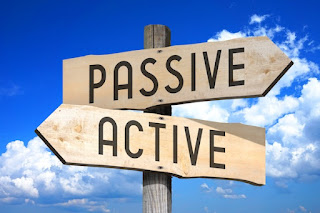Legendary copywriter and entrepreneur Joe Sugarman passed away March 18, 2022 at age 83.
He was a genius direct response copywriter, best known for refining the craft of advertorials, and for his best-selling product: BluBlocker Sunglasses.
For today's marketing writers, his book The Adweek Copywriting Handbook is considered a "must read" featuring advice such as:
“So your first sentence should be very compelling by virtue of its short length and ease of reading. No long multisyllabic words. Keep it short, sweet and almost incomplete so that the reader has to read the next sentence.”
Since you're reading this blog, you most likely already own The Adweek Copywriting Handbook . Now get a copy of Sugarman’s Advertising Secrets of the Written Word.
Here’s a tease of what you’ll get in the book:
Sugarman’s 17 Axioms of Copywriting.
1. Copywriting is a mental process the successful execution
of which reflects the sum total of all your experiences, your specific
knowledge and your ability to mentally process that information and transfer it
onto a sheet of paper for the purpose of selling a product or service.
2. All the elements in an advertisement are primarily
designed to do one thing and one thing only: get you to read the first sentence
of the copy.
3. The sole purpose of the first sentence in an
advertisement is to get you to read the second sentence of the copy.
4. Your ad layout and the first few paragraphs of your ad
must create the buying environment most conducive to the sale of your product
or service.
5. Get the reader to say yes and harmonize with your
accurate and truthful statements while reading the copy.
6. Your readers should be so compelled to read your copy
that they cannot stop reading until they read all of it as if sliding down a
slippery slope.
7. When trying to solve problems, don’t assume constraints
that aren’t really there.
8. Keep the copy interesting and the reader interested
through the power of curiosity.
9. Never sell a product or service, sell a concept.
10. The incubation process is the power of your subconscious
mind to use all your knowledge and experience to solve a specific problem, and
its efficiency is dictated by time, creative orientation, environment and ego.
11. Copy should be long enough to cause the reader to take
the action that you request.
12. Every communication should be a personal one, from the
writer to the recipient, regardless of the medium used.
13. The ideas presented in your copy should flow in a
logical fashion, anticipating your prospect’s questions and answering them as
if the questions were asked face-to-face.
14. In the editing process, you refine your copy to express
what you want to express with the fewest words.
15. The more the mind must work to reach the conclusion successfully,
the more positive, enjoyable or stimulating the experience.
16. Selling a cure is a lot easier than selling a
preventative, unless the preventative is perceived as a cure or curative
aspects of the preventative are emphasized.
17. Telling a story can effectively sell your product,
create the environment or get the reader well into your copy as you create an
emotional bonding with your prospect.
Advertising Secrets of the Written Word: The Ultimate
Resource on How to Write
Powerful Advertising Copy from One of America's Top
Copywriters and Mail Order Entrepreneurs
Available on Amazon







